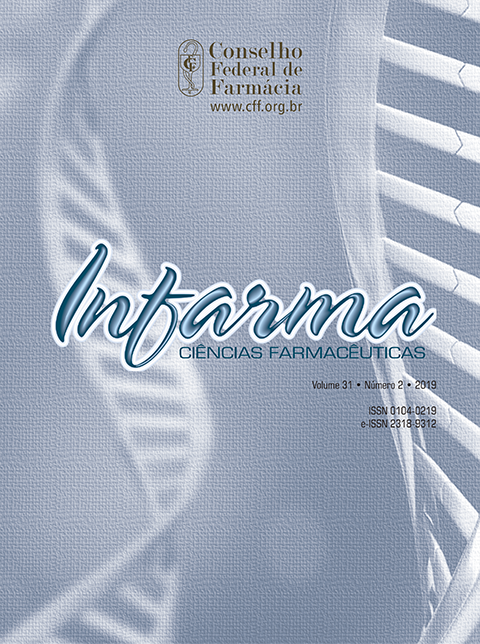KOMBUCHA: IN VITRO AND IN VIVO EFFECTS
DOI:
https://doi.org/10.14450/2318-9312.v31.e2.a2019.pp73-79Keywords:
probiotic, microbiota, functional beverage, Camellia sinensis (L.) Kuntze, PhytotherapyAbstract
The search for a healthier lifestyle has led people to seek out to consume foods with functional properties. Kombucha is a probiotic that has been consumed all over the world, as a refreshing home-made drink, and is also marketed by some companies. The objective of this study was to evaluate kombucha drink, regarding its composition, beneficial effects and toxicological aspects. A critical review of the literature based on scientific articles, books and official documents was carried out in the databases of scientific articles: SciELO, Lilacs, Medline, and Science Direct in Portuguese, English and Spanish languages, published between 2014 and 2018. The descriptor used for the scientific searches was “kombucha”. The bibliographic search was done without the restriction of population and subject to not limit the number of articles. Studies indicated probable benefits related to the chemical composition of kombucha. Antioxidant, antibacterial and antifungal activity, probiotic effect, anticarcinogenic potential, hypoglycemic effect, as well as other
therapeutic, and preventive effects of chronic non-transmissible diseases. Few research has been done with humans to assess kombucha benefits, toxicity, and therapeutic uses more accurately. Therefore, more research should be done in order to identify the produced metabolites and to understand their relation with the biological activities, as well as its application in humans.
Downloads
Published
How to Cite
Issue
Section
License
Authors who publish in this journal agree to the following terms:
- Authors retain the copyright and grant the journal the right of first publication, with the work simultaneously licensed under the Licença Creative Commons Attribution which allows the sharing of work with acknowledgment of authorship and initial publication in this journal.
- Authors are authorized to take additional contracts separately, for non-exclusive distribution of the version of the work published in this journal (e.g. publish in institutional repository or as a book chapter), with acknowledgment of authorship and initial publication in this journal.
- Authors are allowed and encouraged to publish and distribute their work online (e.g. in institutional repositories or on their personal page) at any point before or during the editorial process, as this can generate productive changes as well as increase the impact and Citation of published work (See O Efeito do Acesso Livre ).


